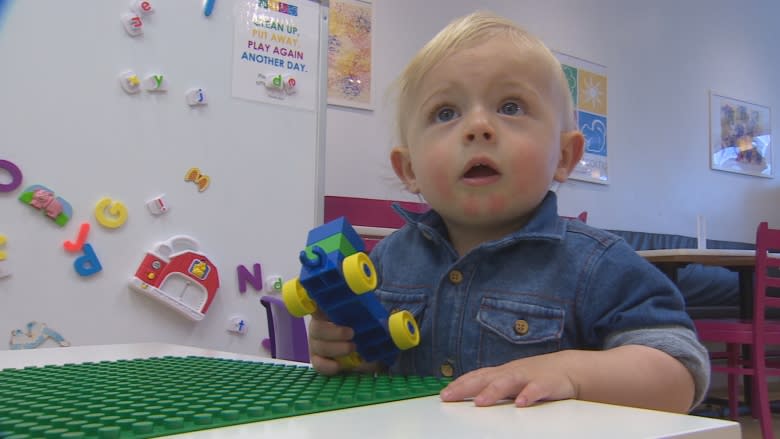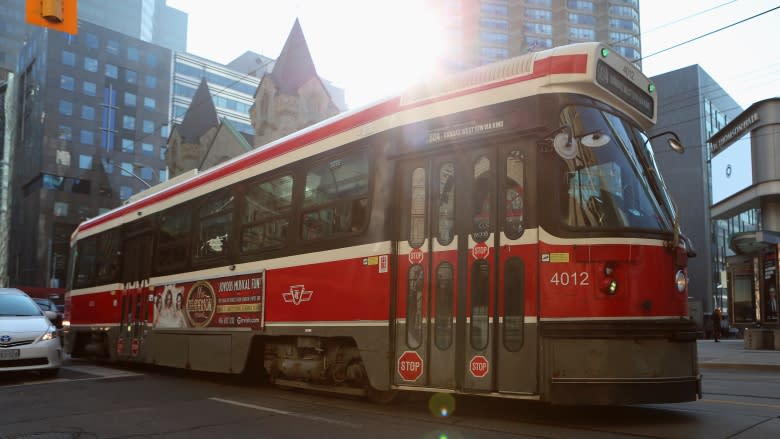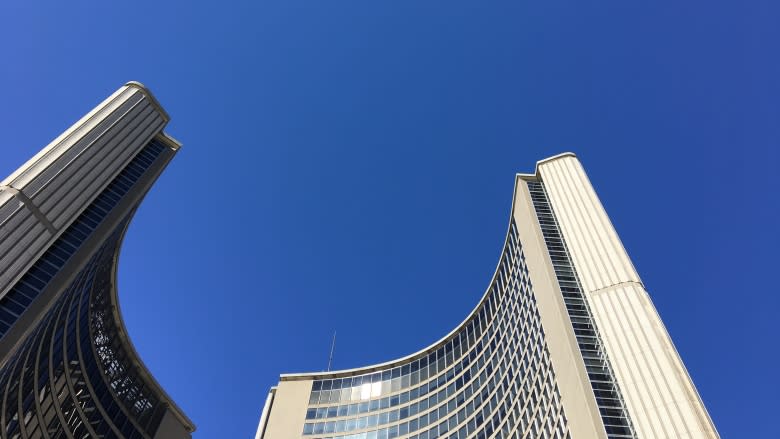Ontario budget 2017: Toronto gets new taxes, but not the big bucks it was looking for
Toronto will be able to tax both hotels and vacant properties thanks to Ontario's new budget — but it's not getting the funding it was hoping for to fix crumbling social housing.
Mayor John Tory has been pressuring the province for months to deliver money for three key areas: affordable housing, public transit and child care. Finance Minister Charles Sousa's latest budget, titled A Stronger, Healthier Ontario, features some investment in those areas that will flow to the city, but not as much as Tory was asking for.
-
HIGHLIGHTS | The facts, figures and changes you need to know
"We're actually doing quite a bit for Toronto," Finance Minister Charles Sousa told reporters.
"When it comes to affordable housing, we are working with the cities … we're taking steps," he said, noting the province is spending around $2 billion over a three-year span when investments in affordable housing, social housing and anti-homelessness measures are combined.
Tory, however, has said the city urgently needs over $800 million to help fix Toronto Community Housing (TCH) buildings. That money isn't in the budget.
Instead, Ontario is offering up to $100 million worth of land to build some 2,000 affordable housing units on. Some money is also available through the Social Infrastructure Fund, of which Toronto gets a cut of the ongoing three-year $640-million plan.
It's unclear how much money, if any, will flow to TCH, which has a multi-billion dollar repair backlog and is set to close hundreds of units this year.
In a statement, Tory said he made his expectations clear ahead of the budget, but the province didn't deliver.
At city hall, several councillors blasted the plan's lack of social housing money.
"Right now, we don't have a partner for the social housing issue in the provincial government," said Coun. Ana Bailao, who is also the chair of the affordable housing committee.
Toronto to set its own hotel tax rate
Toronto asked Queen's Park for permission to levy a hotel and short-term accommodation tax months ago, but its inclusion in the provincial budget likely comes as a welcome surprise.
The province will soon amend the City of Toronto Act so it can tax any "transient accommodation," including both hotels and home-sharing services like Airbnb.
However, the province will include a regulation that the city must spend a portion of the revenues to promote tourism in the area. That's because many hotel owners — who previously objected to the idea of a tax on their business, arguing it will hurt vacationing Ontario families — will likely stop paying the voluntary Destination Marketing Fee.
PC Leader Patrick Brown was quick to blast the move, saying "it wouldn't be a Liberal budget if we didn't have some sort of tax."
Brown, who also opposed the city's road toll proposal, said if the province spent its infrastructure money competently, the city would get a lot more money.
City staff have floated the idea of a four per cent tax on hotels, and a 10 per cent tax on short-term rentals.
Smaller municipalities will also get the option of charging a hotel tax. The province also said its working with municipalities to build a "framework" to deal with home-sharing.
More child care spaces opening
On child care, the province has pledged to open 100,000 new child care spaces with nearly a quarter of those spots set to open this year. It's unclear how many of those spaces will open in Toronto.
The government is also vowing to work with municipalities to expand its plans, which is good news for a city that just approved an ambitious 10-year child care plan.
Province sticking with transit plans
The new budget touts the $56 billion worth of transit projects the province is already committed to — including multiple Toronto projects — but there's no new money. The province is, however, in talks with the federal government about how to fund the next phase of projects.
"We're just going through the process," Sousa said when asked about the lack of a signature transit investment in this year's financial plan.
NDP Leader Andrea Horwath said there are "no real transit improvements" in this budget, and vowed her party would fund 50 per cent of operating costs should she be elected.
Tory is set to speak about the budget at city hall on Thursday afternoon.
Land transfer money pouring in
The option to tax vacant properties, meanwhile, is the result of a push to cool Toronto's hot housing market — which likely accounts for a large percentage of the $2.7 billion in land transfer tax revenue that helped balance Ontario's books.
The budget says Toronto will get "broad authority" when it comes to the vacant property tax, and that it will be responsible for both designing and administering it.
The goal, the budget notes, is to "encourage owners to sell unoccupied units or make them available to be rented."
All cities will get the ability to tax vacant land that's been approved for new housing to spur housing development.
Ontario bets housing boom will continue
The budget warns there's been an "acute" deterioration in housing affordability in the GTA. The combination of a sky-high real estate prices and high levels of debt, it notes, leave Ontario households vulnerable should there be an "adverse economic shock."
That said, the province doesn't see it. It's anticipating some $3.1 billion in land transfer revenue in the coming year, a number Sousa says is actually conservative.
"We build prudence into our plan," Sousa said.
That's good news for the city, which has also been relying on land transfer proceeds to balance its books.





